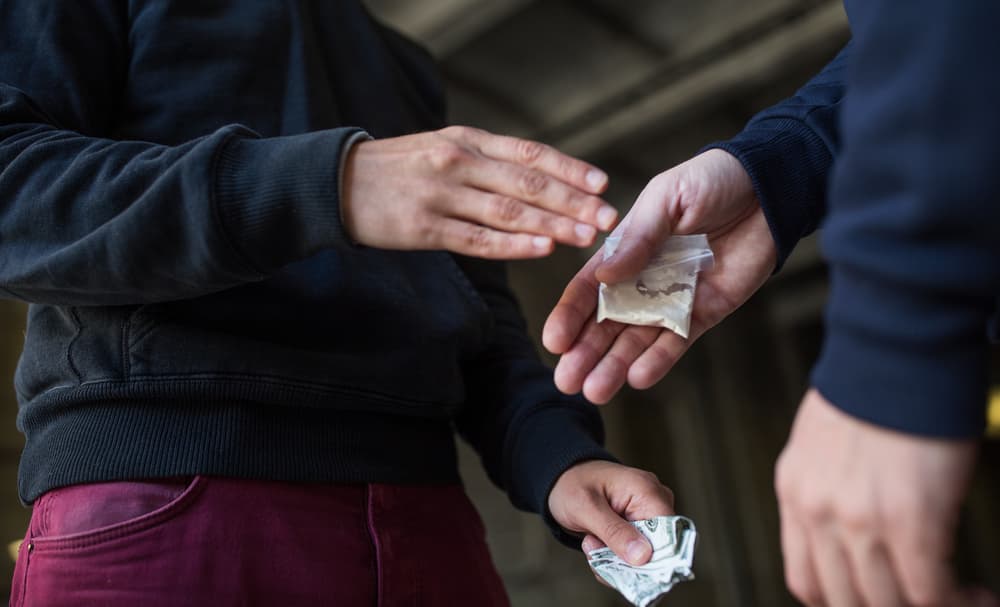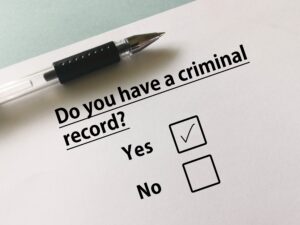The Consequences of Drug Trafficking

Drug trafficking is a serious crime in California, especially in Los Angeles, where strict laws are enforced to deter this illegal activity.
If you or someone you know is facing drug trafficking charges, understanding the consequences of drug trafficking is vital to making informed decisions. Reach out a experienced drug trafficking defense attorney near you for legal help.
Key Takeaways
-
Furnishing harmful or obscene materials to a minor is a serious offense under California Penal Code §313, covering explicit images, videos, or content deemed inappropriate for minors.
-
The term “furnish” includes sharing or sending explicit material through any medium — even electronically, such as texts or social media.
-
Penalties range from misdemeanors with up to one year in jail to felonies carrying prison terms of up to three years and potential sex offender registration.
-
Defenses include lack of knowledge of the recipient’s age, accidental sharing, parental consent, or unlawful search and seizure violations.
-
A skilled Los Angeles criminal defense attorney can challenge evidence, protect your rights, and work toward reduced charges or dismissal.
How is drug trafficking defined in California?
Drug trafficking refers to the sale, transportation, or distribution of illegal drugs. California law considers trafficking a more severe offense than possession because it involves moving large amounts of substances for sale or other illegal purposes.
Drugs commonly linked to trafficking charges include cocaine, heroin, methamphetamine, fentanyl, and even prescription drugs when distributed illegally.
Is drug trafficking different from drug possession?

Yes, the key difference lies in intent and quantity.
Possession often means small amounts intended for personal use, whereas trafficking usually involves large quantities and an intent to sell. Even possessing substantial amounts of drugs can lead to trafficking charges if law enforcement believes the drugs were meant for sale.
Can I face jail time for drug trafficking?
Yes, drug trafficking can lead to lengthy prison sentences.
California punishes trafficking based on the type and quantity of the drug. For instance, transporting or selling heroin or cocaine could result in a five-year prison sentence or more. Federal laws are even harsher, and a conviction can lead to decades in federal prison, especially for large-scale operations.
Are there fines for drug trafficking convictions?
Yes, steep fines are a common penalty for drug trafficking. Fines can range from thousands to millions of dollars depending on the amount and type of drug involved. These fines are meant to strip away potential profits from illegal activities.
What other consequences can I face?
Beyond jail time and fines, other consequences can include probation, community service, asset forfeiture, and mandatory drug rehabilitation programs. If convicted, you could also lose employment opportunities, housing, and eligibility for certain government benefits.
A criminal record for drug trafficking may follow you long after serving your sentence.
How is drug trafficking investigated in Los Angeles?
Law enforcement focuses on various clues, including large quantities of drugs, packaging materials, cash, communication records, and any signs of intent to distribute.
Direct evidence, such as surveillance videos or intercepted communications, can significantly build a case.
Do federal agencies get involved in drug trafficking cases?
Yes, federal agencies like the DEA (Drug Enforcement Administration) often get involved in large-scale trafficking cases. If drugs cross state or international borders or substantial quantities are involved, the case might escalate to the federal level, increasing the severity of potential penalties.
How do laws in California differ from federal drug trafficking laws?

Federal laws often carry harsher sentences. For instance, federal mandatory minimum sentences apply to specific drug quantities, leading to automatic years in prison. California law, on the other hand, allows more discretion when determining sentences, particularly for first-time offenders or low-level trafficking cases.
How does Proposition 47 affect drug-related charges in California?
Proposition 47, passed in California in 2014, reduced certain drug possession charges from felonies to misdemeanors. However, this does not apply to drug trafficking, which remains a felony offense due to its serious nature.
What Should I Do If I’m Charged with Drug Trafficking?
No, it’s always best to remain silent and request legal representation. Anything you say to law enforcement without an attorney present can be used against you. Staying silent doesn’t imply guilt; it simply protects your rights.
Can Drug Trafficking Charges Be Reduced or Dismissed?
Yes, in some cases. For example, if evidence was obtained unlawfully or the arresting officers violated your rights, your attorney may get the charges reduced or dismissed. Plea deals might also be an option, depending on the circumstances of your case.
What Are the Long-Term Consequences Of A Drug Trafficking Conviction?
A conviction for drug trafficking can have long-lasting effects on your personal and professional life. It may prevent you from securing jobs, housing, or loans. Landlords and employers often conduct background checks, and a trafficking conviction can be a red flag.
Can I Restore My Record After a Conviction?

Expungement is an option for some criminal convictions in California, but it’s generally not available for drug trafficking. However, if you satisfy certain conditions, you might qualify for a certificate of rehabilitation, which can reduce some of the long-term effects of your conviction.
Why Are the Stakes So High for Drug Trafficking Charges In Los Angeles?
Los Angeles serves as a major hub for drug distribution due to its proximity to international borders and ports. Consequently, local and federal law enforcement work tirelessly to crack down on drug trafficking networks, and penalties are severe to discourage this activity.
How Can I Prepare For Court Appearances?
Gather any documents or information that support your case. This may include proof of employment, character references, or evidence that refutes the charges. Your attorney will help you organize and present this information effectively.
Can I Continue My Day-To-Day Life After Being Charged?
Depending on your situation, you may be released on bail, allowing you to continue working or caring for your family. Use this time to focus on building your defense and staying out of trouble.
Why Is Professional Legal Defense Important In Drug Trafficking Cases?

Drug trafficking cases are complex and require legal knowledge to challenge evidence, negotiate with prosecutors, and present a strong defense. Handling the case alone puts you at a significant disadvantage.
How can a legal team help my case?
An experienced criminal defense attorney can analyze the evidence, identify potential weaknesses in the prosecution’s case, and develop a strategic defense plan. This could mean negotiating for lesser charges or proving your innocence in court.
Are There Alternatives to Serving Time for Drug Trafficking?
Some first-time offenders may qualify for alternative sentencing, such as drug diversion programs. These programs focus on treatment and rehabilitation instead of traditional punishment. However, diversion programs are generally not available for high-level trafficking charges.
Can House Arrest Or Probation Replace Jail Time?
House arrest, probation, or community service may be alternatives under certain circumstances, especially for low-level offenders. Your attorney can advise you on whether these options are possible in your case.
What Defenses Are Commonly Used in Drug Trafficking Cases?
Defense strategies depend on the unique details of your situation.
Here are some common approaches attorneys may use:
- Unlawful Search and Seizure
The evidence gathered might be inadmissible in court if law enforcement searched without a warrant or proper cause. - Lack of Ownership
Your attorney could argue that the drugs did not belong to you and that there is no proof linking you to the illegal substances. - Insufficient Evidence
The prosecution must prove beyond a reasonable doubt that you were involved in drug trafficking. Your attorney can challenge the case if there are gaps in their evidence. - Coercion or Duress
If you were forced or threatened into participating in drug trafficking, this could form the basis of a defense. - Mistaken Identity
If the prosecution has confused you with someone else or misidentified your involvement, your lawyer could use this as a defense.
Choosing the right defense depends on the specifics of your case, and it’s essential to work closely with legal counsel to build a strong strategy.
How Can I Protect My Rights During A Drug Trafficking Investigation?

Here are some key steps you can take to safeguard your rights during an investigation:
- Know Your Rights
You are protected against unreasonable searches and seizures under the Fourth Amendment. This means law enforcement needs a valid warrant or probable cause to search your home, vehicle, or personal property. - Do Not Consent to Unlawful Searches
If officers attempt to search your belongings without a warrant or your explicit consent, you have the right to politely refuse. - Remain Silent
You are not obligated to answer questions without an attorney present. Politely inform officers that you are exercising your right to remain silent. - Document Details of the Search
Take note of when and where the search occurred and whether officers had a warrant. This information could be vital for your defense. - Contact an Attorney Immediately
If you suspect a search violated your rights, share all the details with your lawyer. They can investigate and challenge unlawful search evidence in court.
These steps help protect your constitutional rights and strengthen your defense.
Can I Refuse to Speak to Investigators?
Yes. You can remain silent and request an attorney, even during an investigation. Exercising this right is essential to avoid incriminating yourself.
Why Are Assets Seized in Drug Trafficking Cases?
Law enforcement seizes assets under the belief that they were used in or gained through illegal drug activities. For example, if a car is suspected of being used to transport drugs, or cash is found in amounts suggesting drug sales, these items may be taken.
The idea is to prevent further illegal activities and strip traffickers of their financial resources.
Can Seized Assets Be Recovered?
Yes, it’s possible to recover seized assets, but it requires action within a specific timeframe. Once assets are taken, the government must notify the owner and explain the grounds for forfeiture.
The owner then has an opportunity to file a claim and argue that the property was not connected to drug trafficking. Failing to respond in time could result in permanently losing the assets.
How Can You Challenge Asset Forfeiture in California?
To challenge asset forfeiture, you must show that the property was not used for or derived from drug trafficking.
This can involve presenting evidence that:
- The assets, such as proof of income or ownership, were legally obtained.
- You did not know about illegal activities involving the property.
- The seizure violated your rights, such as if law enforcement conducted an illegal search or had no warrant.
Even if your criminal case is still pending, the case may be handled in civil court. Civil asset forfeiture requires a lower burden of proof than a criminal conviction, which makes it crucial to act quickly and build a strong defense.
Are There Limits to Asset Forfeiture?
Yes, California has laws to address potential abuse of this process. For example, under state law, cash seizures under $40,000 require a criminal conviction before the assets can be forfeited.
This is different from federal law, where forfeiture can occur regardless of the criminal case’s outcome.
What Should You Do if Your Assets Are Seized?

If law enforcement seizes your assets during a drug trafficking case, here are steps you can take to protect your rights and try to recover your property:
- Act Quickly
Respond promptly to all notifications about the asset seizure. There are strict deadlines to file a claim, and missing them could result in permanent loss of your property. - Keep All Documentation
Save any letters, notices, or receipts related to the forfeiture. This information will be important for building your claim. - Consult With Legal Counsel
An attorney can help you understand the forfeiture process, assess the evidence, and file the necessary claims. - Prove the Legitimacy of Your Property
Be prepared to show documentation, like proof of income or ownership, to support your argument that the property was unrelated to illegal activities. - Challenge Improper Searches
If the asset seizure resulted from an unlawful search, your lawyer could argue that the search violated your rights and the evidence should be dismissed.
Taking these steps improves your chances of recovering seized property and helps protect your financial stability during a difficult time.
What’s the Next Step After Learning the Consequences Of Drug Trafficking?
Facing drug trafficking charges can feel overwhelming, but you don’t have to go through it alone. At Rodriguez Law Group, our experienced attorneys understand what’s at stake and are ready to fight for you.
With decades of experience handling criminal defense cases, we can help you understand your options and build a strong defense.
Contact Los Angeles criminal defense law firm today for a free consultation at (213) 995-6767. We’re here to protect your rights and fight for your future.


